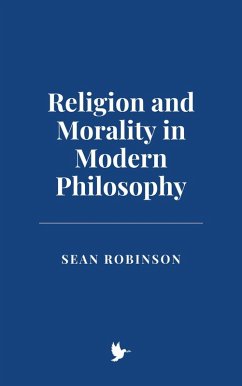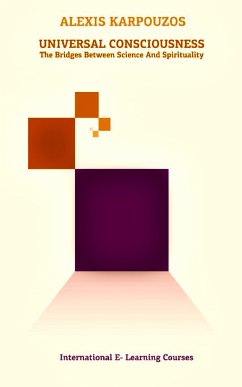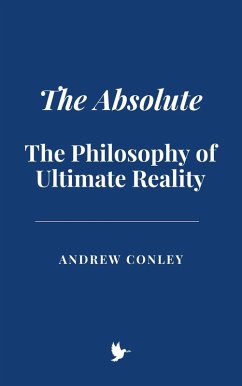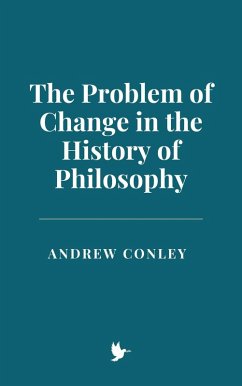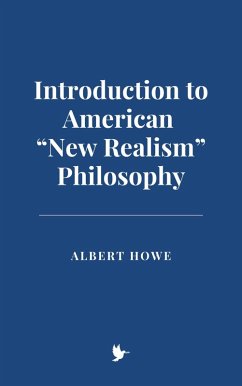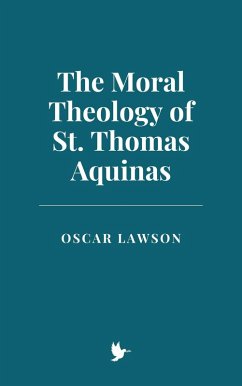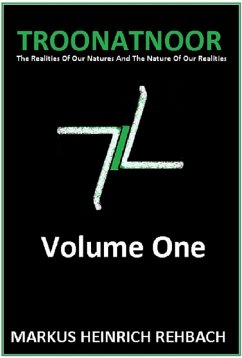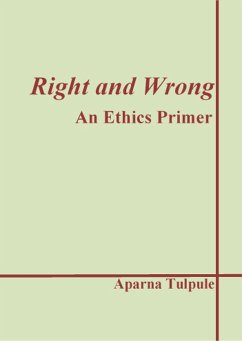
Scientific Realism vs. Anti-Realism Debate in the Context of Quantum Mechanics and Cosmology (eBook, ePUB)

PAYBACK Punkte
0 °P sammeln!
This book explores the scientific realism vs. anti-realism debate in the context of cosmology, focusing on key questions about the nature of the universe, the role of unobservable entities such as dark matter and dark energy, and the implications of speculative theories like the multiverse. It examines how cosmological theories and models, including the Big Bang, inflationary theory, and the ΛCDM model, raise fundamental questions about the nature of reality and the limits of scientific knowledge.The book begins by outlining the main positions in the realism vs. anti-realism debate, with ...
This book explores the scientific realism vs. anti-realism debate in the context of cosmology, focusing on key questions about the nature of the universe, the role of unobservable entities such as dark matter and dark energy, and the implications of speculative theories like the multiverse. It examines how cosmological theories and models, including the Big Bang, inflationary theory, and the ΛCDM model, raise fundamental questions about the nature of reality and the limits of scientific knowledge.
The book begins by outlining the main positions in the realism vs. anti-realism debate, with realists claiming that successful scientific theories describe a mind-independent reality, while anti-realists emphasize the empirical adequacy of theories without necessarily committing to the existence of unobservable entities. Through an analysis of cosmological discoveries-such as the cosmic microwave background (CMB) and the observed expansion of the universe-it delves into how both realists and anti-realists interpret the success of these models in light of the constraints on observation and the use of computer simulations.
The exploration of dark matter and dark energy-which make up the majority of the universe's mass-energy content but remain undetected-serves as a focal point for the discussion on whether cosmology describes reality or provides useful, yet incomplete, representations. The book also investigates how philosophical insights, such as inference to the best explanation (IBE) and the no miracles argument, play roles in supporting or challenging scientific realism in the field of cosmology.
Further, the book addresses the implications of more speculative cosmological theories, like the multiverse hypothesis, and their philosophical status given the difficulties in empirical verification. The relationship between models, simulations, and their role in shaping our understanding of cosmic phenomena is discussed, as are the inherent limits of cosmological knowledge imposed by the observable universe and the early moments of cosmic history.
Finally, the book considers how philosophy and cosmology intersect, offering insights into the ethical, existential, and metaphysical questions raised by our expanding knowledge of the universe. It concludes with a forward-looking perspective on the future of cosmology, anticipating how new discoveries and advancements may shape the ongoing debate between scientific realism and anti-realism.
The book begins by outlining the main positions in the realism vs. anti-realism debate, with realists claiming that successful scientific theories describe a mind-independent reality, while anti-realists emphasize the empirical adequacy of theories without necessarily committing to the existence of unobservable entities. Through an analysis of cosmological discoveries-such as the cosmic microwave background (CMB) and the observed expansion of the universe-it delves into how both realists and anti-realists interpret the success of these models in light of the constraints on observation and the use of computer simulations.
The exploration of dark matter and dark energy-which make up the majority of the universe's mass-energy content but remain undetected-serves as a focal point for the discussion on whether cosmology describes reality or provides useful, yet incomplete, representations. The book also investigates how philosophical insights, such as inference to the best explanation (IBE) and the no miracles argument, play roles in supporting or challenging scientific realism in the field of cosmology.
Further, the book addresses the implications of more speculative cosmological theories, like the multiverse hypothesis, and their philosophical status given the difficulties in empirical verification. The relationship between models, simulations, and their role in shaping our understanding of cosmic phenomena is discussed, as are the inherent limits of cosmological knowledge imposed by the observable universe and the early moments of cosmic history.
Finally, the book considers how philosophy and cosmology intersect, offering insights into the ethical, existential, and metaphysical questions raised by our expanding knowledge of the universe. It concludes with a forward-looking perspective on the future of cosmology, anticipating how new discoveries and advancements may shape the ongoing debate between scientific realism and anti-realism.
Dieser Download kann aus rechtlichen Gründen nur mit Rechnungsadresse in A, B, CY, CZ, D, DK, EW, E, FIN, F, GR, H, IRL, I, LT, L, LR, M, NL, PL, P, R, S, SLO, SK ausgeliefert werden.




